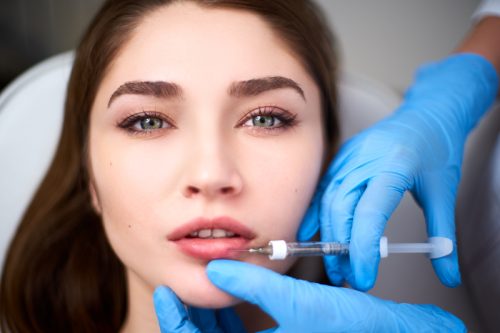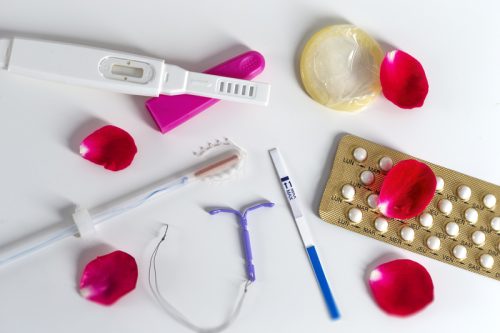Getting pregnant and starting a family is an exciting and important decision in a woman’s life, but it can sometimes be difficult. You might have a lot of questions preconception about how to have a healthy pregnancy. Our NYC ob/gyns are ready to help answer your questions and make your pregnancy journey as easy as possible for you and your little one.
In the meantime, here are some answers to a few of the most frequently asked questions about getting pregnant and what affects fertility.
What lifestyle changes should I make?
Whether you are just considering getting pregnant or have been trying for a while, it is a great idea to talk to your health care provider about lifestyle changes you can make to increase your chances of conceiving and having a healthy pregnancy.
Even if you don’t intend to get pregnant any time soon, it is important to have family planning conversations with your doctor or gynecologist to be sure you are informed about your reproductive health and how lifestyle choices can affect your chances of conceiving.
Having a healthy diet and eating nutrient-dense food is important for every one, but women considering getting pregnant may especially want to follow a healthy diet. Getting lots of protein and nutrient-dense fruits and veggies can be critical lifestyle changes if you want a healthy menstrual cycle and to get pregnant.
It is also important to be at a healthy weight, have low blood pressure, and exercise regularly, but strenuous exercise or over exercising should be avoided. Over excising can lead to decreased progesterone production and even amenorrhea (loss of your period).
In addition to a healthy diet, supplements such as prenatal vitamins and folic acid are important to take preconception. These supplements can help prepare your body to support conception and healthy growth and development of the baby. Your gynecologist can help determine what vitamins and levels of supplementation are best for you to take.
If you are thinking of getting pregnant, it is best to also consider reducing or stopping any alcohol, drug, cigarette, and caffeine consumption. It is best to avoid these substances while pregnant or trying to conceive for both your health, your reproductive health, and the health of the baby.
You may also want to consider the health and beauty products that you use, as well as other products you use around the home. Some products may expose you to harsh chemicals, hormones, or other substances that might not be recommended for pregnant women.
Finally, it is a good idea to reduce stress as much as possible and get lots of restful sleep.
Talk to your doctor about these questions and evaluate what lifestyle changes you might need to make if you are considering getting pregnant or having trouble conceiving.
What health conditions affect my chances of getting pregnant?
There are several women’s health conditions that may affect fertility, such as PCOS, endometriosis, STDs, ovulation disorders, irregular periods, thyroid problems, uterine or cervical abnormalities such as fibroids, diabetes, autoimmune disorders, and more.
Fertility does decrease as you get older. Women over the age of 35 are more likely to have trouble conceiving, although not all women will necessarily have issues getting pregnant. If you have any concerns about your fertility, you can also receive fertility testing to determine if you have a normal ovarian reserve and are healthy enough to conceive.
If you have a medical history or family history of any of these conditions or are over the age of 35, you should speak with your obstetrician or fertility specialist about your options for getting pregnant, and if fertility treatments such as IVF might be required.
Does my partner’s health affect my chances of getting pregnant?
Yes, your partner’s health can affect your chances of getting pregnant! To increase your chance of getting pregnant, your partner should take care of their reproductive health too and talk to their doctor about any existing medical conditions or family history of health issues.
There are many similar lifestyle changes that your male partner can make to increase fertility.
Being a healthy weight and eating a nutrient-dense diet is not only good for you, but it can increase the health of the man’s sperm as well. It is a great idea to start eating healthy and working out together as a couple to make sure your reproductive health is great.
It is also a good idea to cut back on alcohol and drug use and smoking. These substances can decrease sperm count and health, decrease testosterone production, and affect fertility. It is also best for you to avoid second-hand smoke and being around these substances.
And just like it is good for you to reduce stress and get lots of sleep, your man can benefit from this as well!
Finally, it is best to avoid sources of high heat, such as saunas, steam rooms, hot showers, and hot tubs. Extreme hot environments can reduce sperm count and increase infertility.
If I’m on birth control, how soon should I stop?
If you are on any type of birth control but want to get pregnant soon, you should talk to your gynecologist about when you should stop taking birth control and how long after stopping until you can safely try to get pregnant.
If you are taking the pill, you might be able to stop right away. If you have an IUD or implant device, you may be able to stop soon but will need to make an appointment to get it removed.
Luckily, most birth control methods allow you to try to get pregnant shortly after stopping and you should not face any long-term effects. Your regular menstrual cycle should return quickly.
Schedule a preconception checkup
Discuss these questions and more with our obstetrics specialists so that you are prepared once your are ready to conceive. We will review your health history and help you determine the best lifestyle changes you can make before starting a family. Schedule your preconception visit with us today!



